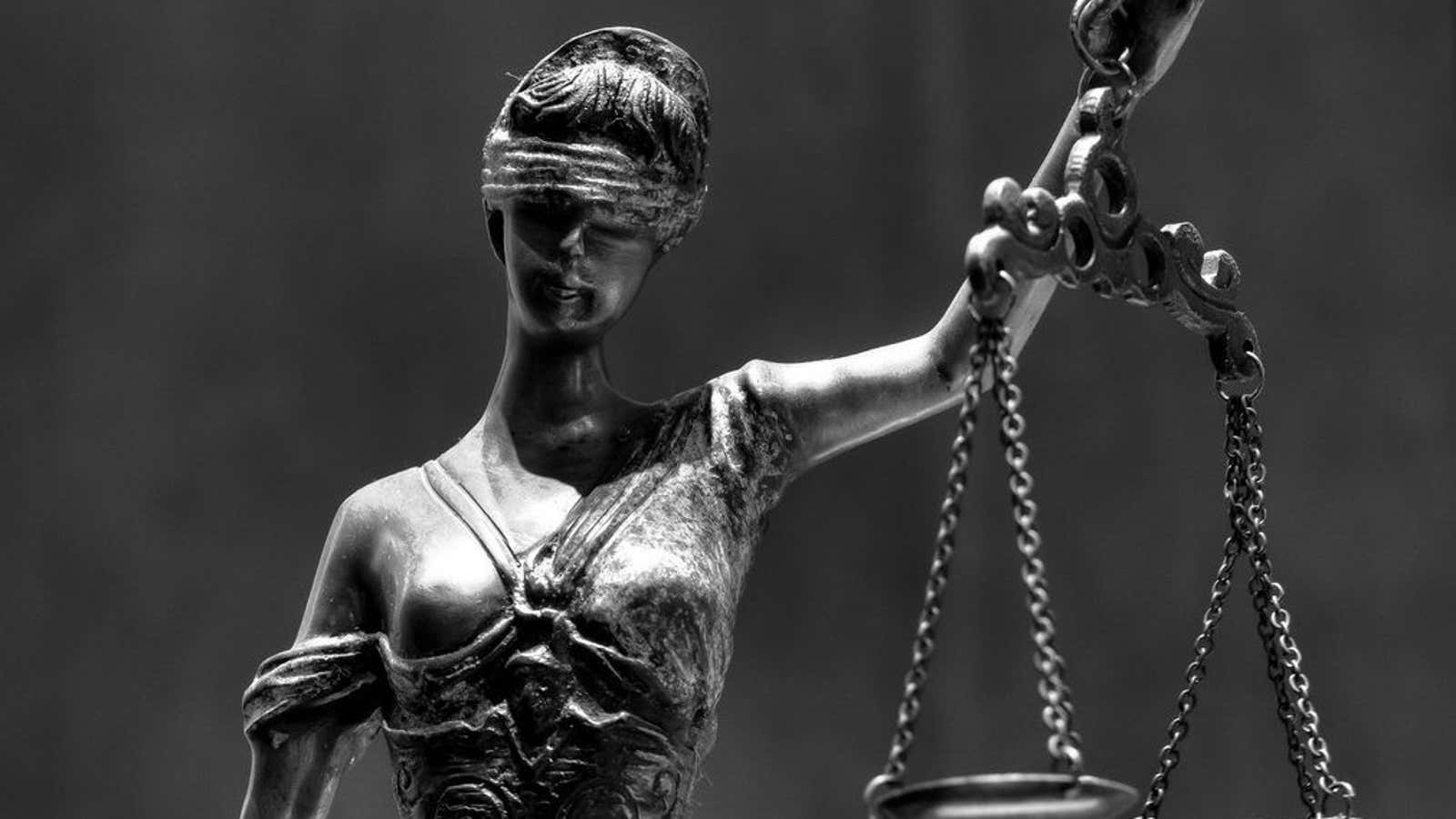An influential figure in academia is under investigation following a Title IX complaint and, before the evidence has been collected, there are cries that the very act of investigating is an injustice. Such a scenario has played out many times before: Shouts of “witch hunt” and concerns about how the allegations would affect the accused followed allegations against Harvey Weinstein, Louis CK, and Al Franken. This time, though, is different: the person under investigation is a woman, and those denouncing the enquiry are feminist theorists.
Avital Ronell, a philosophy professor at New York University, is under investigation by the university’s Title IX offices, according to a letter posted on Chicago University philosopher Brian Leiter’s blog. The letter, with signatories including prominent American gender theorist Judith Butler and Slovenian philosopher Slavoj Žižek, suggests that any kind of investigation in this case is unfair. Though, as the letter concedes, its writers “have no access to the confidential dossier” that presumably contains the reasoning for the enquiry.
As well as definitively stating that Ronell is innocent and has been harmed by the investigation, the letter also claims the original accusations were motivated by malice. It states:
We have all seen her relationship with students, and some of us know the individual who has waged this malicious campaign against her. We wish to communicate first in the clearest terms our profound an enduring admiration for Professor Ronell whose mentorship of students has been no less than remarkable over many years. We deplore the damage that this legal proceeding causes her, and seek to register in clear terms our objection to any judgment against her. We hold that the allegations against her do not constitute actual evidence, but rather support the view that malicious intention has animated and sustained this legal nightmare.
The letter goes on to detail Ronell’s academic accomplishments, adding, “There is arguably no more important figure in literary studies at New York University than Avital Ronell whose intellectual power and fierce commitment to students and colleagues has established her as an exemplary intellectual and mentor throughout the academy.”
Finally, the letter states that firing Ronell would definitively be an “injustice” (though, as noted earlier, the signatories admit they don’t have access to all evidence), threatens a critical response were she to lose her job, and suggests Ronell’s academic brilliance should be considered by the Title IX investigators. It reads:
If she were to be terminated or relieved of her duties, the injustice would be widely recognized and opposed. The ensuing loss for the humanities, for New York University, and for intellectual life during these times would be no less than enormous and would rightly invite widespread and intense public scrutiny. We ask that you approach this material with a clear understanding of the long history of her thoughtful and successive mentorship, the singular brilliance of this intellectual, the international reputation she has rightly earned as a stellar scholar in her field, her enduring commitments to the university, and the illuminated world she has brought to your campus where colleagues and students thrive in her company and under her guidance.
Neither Butler nor Žižek responded to requests for comment. John Beckman, vice president for public affairs at NYU, said that the university’s confidentiality policy “precludes us from making any reference to a specific case” adding, “As to the letter—you would be best off asking one of the people listed as authors.”
The sentiments in the letter go directly against the basic principles that most agree on when it comes to how to respond to sexual-assault allegations: Its writers malign the accuser, suggest the accused’s prominence should influence how they’re treated, and claim—without conducting an investigation of their own or providing evidence—that the accused cannot be found guilty. It also portrays the act of investigating as actively harmful to the accused.
These attitudes, when put forward in defense of accused men, have been rightly criticized. Contemporary methods of investigating sexual harassment and assault—whether criminal, civil, or workplace tribunal—have failed to protect victims and allowed perpetrators to escape unpunished. In this context, claiming that the very act of accusing someone or conducting an investigation causes harm seems to prop up a system that typically protects the accused.
That’s not to say investigations aren’t incredibly trying for those who are innocent. And it’s understandable that those close to those under investigation would seek to defend them—whether the accused is a female professor or male tycoon.
But, in a society that takes sexual violence seriously, all accusations must be investigated. Suggesting that an investigation, ahead of any decision, is in itself an injustice shows a total lack of concern for victims of this widely underreported crime. Many of those who signed the letter defending Ronell are feminist theorists who support these principles in theory. In practice, there should be no exceptions to these rules, even when the professor under investigation is a woman.
